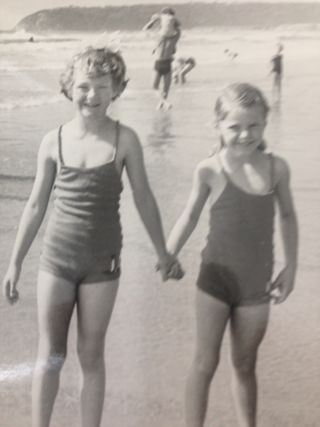Gender
Does Speaking Up Change a Woman's Position in Society?
How much have we accomplished as women during the ages?
Posted March 4, 2018
Recently I was amused to find a novel by a writer named A.J. Finn, " The Woman in the Window." The novel, a thriller based loosely on Hitchcock's " Rear Window," is told from the point of view of a woman and if you did not know the history of this book, you might think it was written by a woman. It is of course a man who wrote it but preferred to leave his name ambiguous, by using initials, just as the Bronte sisters did so long ago publishing their books under pseudonyms that could be taken as male. Currer, Ellis, and Acton Bell were actually, of course, Charlotte, Emily and Anne Bronte, who preferred to face the critics with their gender, indeed their identity, hidden. Mary Ann Evans went a step further and took a frankly masculine name: George Elliot, as did the French writer who took the name, George Sand.
Does this mean then, if men are now camouflaging their gender, that it might be more profitable to publish under a woman's name today? Probably not. Men's books are still reviewed more often and given more prizes. They are still the majority as editors and publishers.
Certainly we have more women writing today than they ever have and writing more freely and frankly about issues that concern women. We had, of course, Doris Lessing, who recently won a Nobel Prize, and dared some years ago, bless her heart, to write about menstruation, in " The Golden Notebook," a subject that had not been broached before by men or women . We have had women like Charlotte Bronte, herself, who dared to write in the nineteenth century about the boredom of women's lives, who has her heroine in "Jane Eyre" suggest that what was important was not society's view of a matter but her own. When Mr Rochester asks Jane who would care if she lived with him as his mistress, she replies that it is she who would care. This example of the moral highroad has surely been helpful to many young women who have found a source of strength in these words.
And Jean Rhys, who came from Dominica, went one step further than Charlotte Bronte giving voice to the "mad" wife in the attic at Thornfield in her wonderful" Wide Sargasso Sea." Charlotte Bronte portrays Mr Rochester's wife like an animal and each time Jane Eyre seems to feel passion of any kind she is punished in some way by this inhabitant of the attic who descends to burn Mr Rochester or to rip Jane's wedding veil to shreds, or finally to set fire to the whole establishment as if this passion cannot be allowed to flourish in Jane's breast. It took Jean Rhys who published her book more than a century later to establish Bertha Mason as Antoinette Cosway a woman with a story of her own
All these brave women have dared to give voice to the truth of a woman's life and have surely led the way for all of us, though obviously there still remains a long way to go. Those in a position of power will always abuse of it if they are not stopped.

References
Jane Eyre by Charlotte Bronte ( Bantam Classics with an introduction by Joyce Carol Oates
The Golden Notebook by Doris Lessing ( Harper Perennial Classics)
Wide Sargasso Sea by Jean Rhys
The Woman in the Window by A.J. Finn


